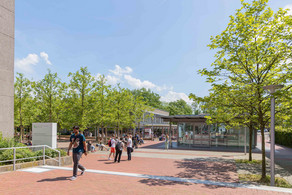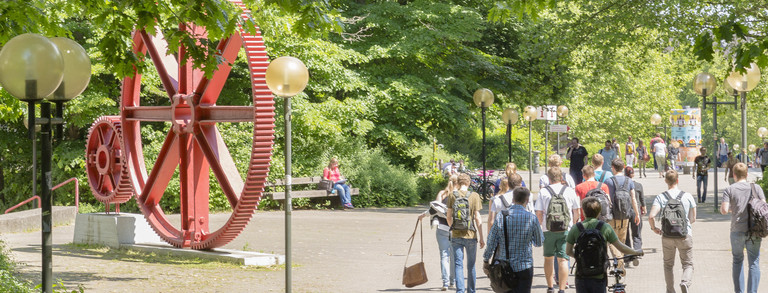Prof. Dr. Ludger Basten
Research
City-regional developments between planning and urban/regional governance
How can contemporary urban development processes in cities and urban regions be planned or controlled? Which institutional or administrative-organizational approaches can be observed, which actor constellations can be identified? Which (in terms of content and process) objectives of urban-regional developments are articulated and negotiated, which decision-making alternatives or development paths ultimately prevail? How is the relationship between state, economy and civil society renegotiated or negotiated in these processes, and what is the role of spatial planning and economic policy for cities and urban regions in particular? These core questions are pursued in studies on the Ruhr region as well as on other German and international urban regions.
Suburbia
Suburbanization is an almost universal process of urban development - even if its extent, historical course, structural forms and cultural meanings vary greatly. In view of the development of many metropolitan regions in the "western industrialized countries", however, it can now be questioned whether terms such as suburbia (or suburbs) can still adequately capture the physical-structural or the socio-economic realities of the outer zones of our cities. These outer zones are increasingly heterogeneous, complex, and usually highly dynamic, whether one focuses on economic, social, or even cultural dimensions of the urban. As Prigge puts it, "this is where the music of urban development plays" (Prigge 1998: 9), where "the urban" is renegotiated and recreated.
In this context, I am particularly interested in three processes: that of the constructional-spatial design of suburbia, that of the control and political-planning handling of the phenomenon (e.g., drawing of boundaries, protection of open space, governance), and that of the increasing differentiation of this outer zone (socio- and cultural-geographically as well as economically). Concrete research on the Ruhr area is in preparation, especially as part of the international research project Global Suburbanisms, led by Prof. Roger Keil (CITY-Institute at York University in Toronto, Canada) and funded by the Social Sciences and Humanities Research Council of Canada.
Restructuring processes of Canadian metropolitan regions
Canada's major cities have undergone profound processes of change in recent decades, transforming mostly industrial modernist metropolitan areas into postmodern metropolitan regions. Although the concrete development paths of individual metropolitan regions differ significantly from one another, general driving forces of these developments, which are interlinked in many ways, can be found: the progressive embedding in transnational economic networks and markets (accompanied by neoliberalist policies in city and nation), rapid demographic changes (driven in particular by international as well as intra-Canadian migrant flows), and changes in cultural and social values. Analyses of Canadian developments offer a variety of perspectives for international comparative urban and metropolitan research, regardless of whether they consider U.S., Asian, or European reference objects and processes. First empirical studies on the course of such restructuring processes in Toronto and Vancouver have already been conducted. A comprehensive review of the Canadian experience in book form is currently being planned.





